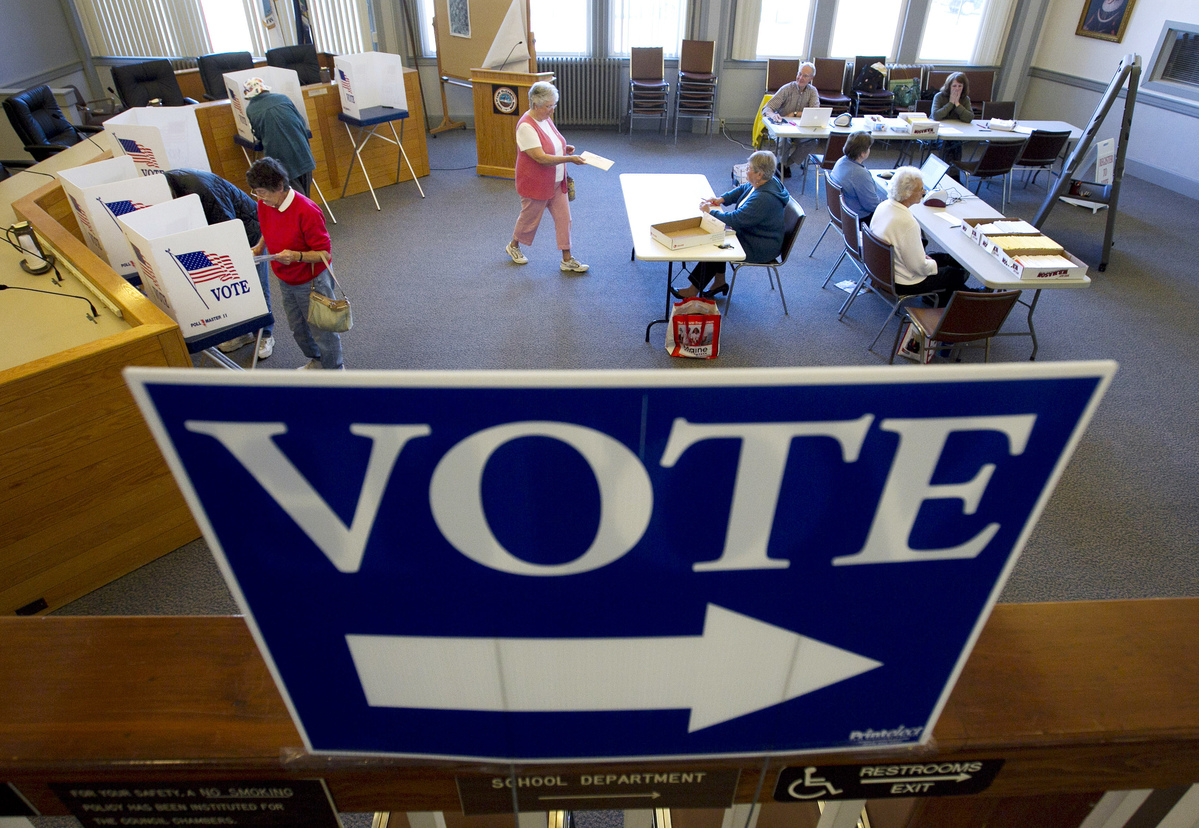Politics
Wabanaki Leaders Oppose Maine’s Question 1, Citing Voter Access Issues

The Wabanaki Alliance has formally opposed Question 1, a proposed measure on Maine’s November 4, 2024, ballot that could restrict voting access for Indigenous residents. This coalition argues that the initiative, which includes a requirement for photo identification at polling places, would disproportionately impact Indigenous voters in the state.
Lead petitioner Alex Titcomb noted that while the initiative’s authors initially considered allowing tribal identification cards as valid voting credentials, they ultimately decided to limit acceptable IDs to only “the most common” government-issued forms. This change has raised concerns among Wabanaki leaders about potential discrimination. Maulian Bryant, executive director of the Wabanaki Alliance, described the initiative as “discriminatory” and “wrong,” stressing its implications for tribal sovereignty and voting rights.
Supporters of Question 1 assert that the measure will bolster election security by mandating photo ID verification before voters can cast their ballots. In addition to the ID requirement, the proposal would restrict municipalities from offering more than one drop box for absentee ballots and eliminate options for voters to request these ballots by phone or through a family member. Acceptable forms of identification include a Maine driver’s license, a U.S. passport, and a military identification card.
While Titcomb argued that obtaining valid IDs is not burdensome, stating, “Every citizen should be able to do that,” critics highlight the existing voting landscape in Maine. Currently, voters must present some form of ID when registering but not when actually voting. Shenna Bellows, Maine’s Secretary of State, pointed out that strict voter ID laws can negatively affect voters of color and minority groups. She emphasized that if Question 1 passes, it would create a legal inconsistency where Indigenous voters could register using tribal ID but be barred from voting with the same identification.
Bryant expressed concern over the potential impact on absentee voting, especially for elderly individuals and caregivers within Wabanaki communities. She noted that absentee ballot usage among voters in these communities was notably lower than the statewide average during the last election, with only 6% to 14% of voters from the Passamaquoddy reservations and the Penobscot Nation using absentee ballots, compared to 47% of all voters in Maine.
The debate surrounding Question 1 highlights a historical context; Wabanaki people in Maine were not allowed to vote in state elections until 1967. This long-denied right to vote is viewed as sacred by many in the community. Bryant stated, “The right to vote is so sacred to us because it was withheld for so long.”
As the November election approaches, the implications of Question 1 remain a key issue for Indigenous voters in Maine. The outcome could signify a significant shift in voting rights and access for these communities.
-

 Science2 weeks ago
Science2 weeks agoIROS 2025 to Showcase Cutting-Edge Robotics Innovations in China
-

 Politics2 weeks ago
Politics2 weeks agoJudge Considers Dismissal of Chelsea Housing Case Citing AI Flaws
-

 World3 weeks ago
World3 weeks agoBravo Company Veterans Honored with Bronze Medals After 56 Years
-

 Lifestyle2 weeks ago
Lifestyle2 weeks agoStone Island’s Logo Worn by Extremists Sparks Brand Dilemma
-

 Health2 weeks ago
Health2 weeks agoStartup Liberate Bio Secures $31 Million for Next-Gen Therapies
-

 Top Stories2 weeks ago
Top Stories2 weeks agoIndonesia Suspends 27,000 Bank Accounts in Online Gambling Crackdown
-

 Health3 weeks ago
Health3 weeks agoTop Hyaluronic Acid Serums for Radiant Skin in 2025
-

 Sports3 weeks ago
Sports3 weeks agoMel Kiper Jr. Reveals Top 25 Prospects for 2026 NFL Draft
-

 World2 weeks ago
World2 weeks agoHoneywell Predicts Record Demand for Business Jets Over Next Decade
-

 Sports3 weeks ago
Sports3 weeks agoYamamoto’s Mastery Leads Dodgers to 5-1 Victory in NLCS Game 2
-

 Lifestyle3 weeks ago
Lifestyle3 weeks agoMary Morgan Jackson Crowned Little Miss National Peanut Festival 2025
-

 Science3 weeks ago
Science3 weeks agoArizona State University Transforms Programming Education Approach









